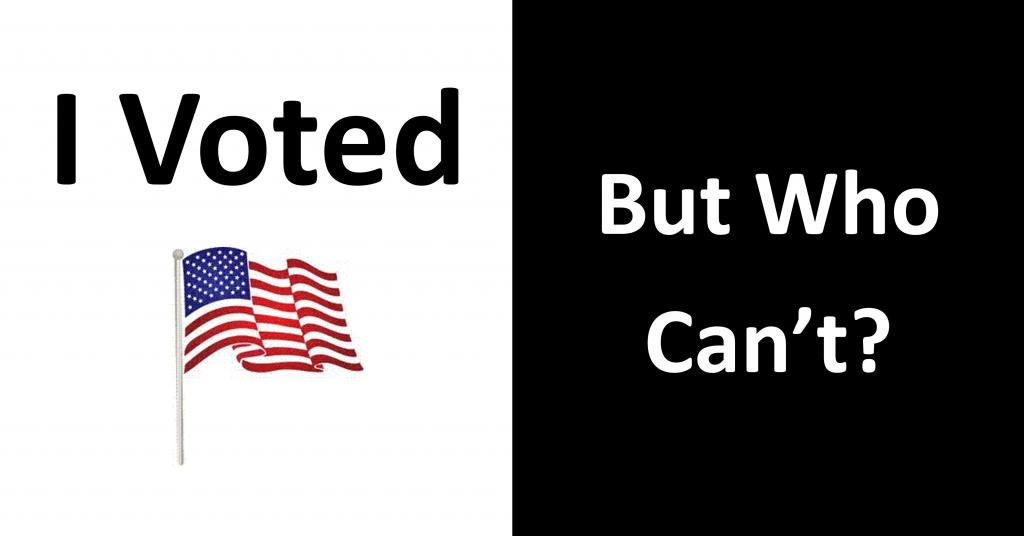Georgia’s new voter suppression law is only one of many. There are several similar bills under consideration in the Texas legislature. According to The Washington Post, Republicans have proposed laws in 43 states that would make it harder to vote. Many of them are likely to pass.
Republicans insist these bills are about election security. Here’s a Fox News op-ed by Georgia Governor Brian Kemp, who claims that this law will “make our elections fairer and more accessible.”
Democrats disagree. In this USA Today editorial, two state attorneys general and a former White House ethics chief say these bills “all pursue the same fundamental strategy: giving one party an advantage in elections by making it harder for communities of color to cast their ballots.”
This piece from The Washington Post summarizes the Georgia law in fairly objective terms. It lists the ways the new law restricts voting access, the couple of ways it expands them, and it also lists more restrictive proposals that didn’t make it into the law… but that might become law in other states.
For those of us who cast our first ballots in an era where polls were only open from 7 AM to 7 PM on Election Day and where absentee ballots were difficult to get, these laws seem almost trivial.
That’s because they aren’t intended to affect us.
These laws are about two things: mollifying far-right and pro-Trump Republicans, and reducing the number of poor and Black people who vote.
Because as we’ve seen in the past two Presidential elections, sometimes winning or losing comes down to just a few votes in just a few places.
Perpetuating the voter fraud myth
“Dead people are voting.” “Illegal immigrants are voting.” “People are voting two and three times.”
I’ve heard these complaints for years. But there’s no evidence that they’re true. They’re popular among the far right, because it feeds into their belief that “those people” are ruining the country.
In every election there are a handful of cases of voter fraud… such as this case of a Pennsylvania man who voted as his dead mother and his dead mother-in-law – for Donald Trump. When these cases are found they’re prosecuted… as was this case of a legal immigrant who thought it was legal for her to vote, and was deported for it.
There simply is no widespread voter fraud, despite the endless claims of Donald Trump and his sycophants. But when honest Republicans try to explain that, they’re called “an enemy of the people” and find themselves being primaried from the far right.
This is the number one reason behind these voter suppression laws. They let Republicans tell their base “see, we believe you – we’re doing something about this horrible problem – please keep voting for us.”
And the lie of massive voter fraud continues.
Chipping away at the edges of Democratic voters
Democrats control the Senate (barely) for one reason: Stacey Abrams and her team worked tirelessly on voter registration and voter turnout, largely in the Black community. The result is that Georgia elected its first Democratic Senator in 16 years and has two Democratic Senators for the first time in 18 years.
But Raphael Warnock defeated Kelly Loeffler by only 93,272 votes, and Jon Ossoff defeated David Perdue by 54,944 – 1.2% of the vote. Joe Biden beat Trump by 11,779 votes, which caused Trump to call Georgia Secretary of State Brad Raffensperger to pressure him to “find 11,780 more votes.”
That attempted voter fraud is being investigated, but not yet prosecuted.
When elections are this close, every vote counts. The usual way to deal with that is to encourage your side to vote. But it works just as well if you can discourage or prevent the other side from voting.
I was legally entitled to vote absentee when I was away from home in college. But it was so much trouble I didn’t. If Republicans can make it harder for people on the edges to vote, many of them won’t.
And the majority of people on the edges tend to vote Democratic.
Intent matters. The intent of these laws is to insure that fewer poor and Black people vote.
But the ID is free!
Voter ID laws are always portrayed as economically neutral because you can get a state issued ID for free. Sure, the ID card doesn’t cost you anything. But getting to the point where you can get it does.
If you don’t already have a government ID, you’re going to need your birth certificate. Do you have your birth certificate sitting around, in a place where you can find it?
George Chidi is the most knowledgeable and down-to-earth journalist I know when it comes to Georgia politics. Recently he had this to say:
No state offers a free birth certificate. The cheapest is North Dakota at $8. Michigan is $34. The average is around $20. Obtaining one by mail can require more money, time … and a place you can pick up your mail. Some states are easier to work with than others. Reason save you if you were born in New York — the backlog for processing birth certificate requests is months-long.
Now complicate this with name changes.
If you don’t have a car, you’ll have trouble getting to the DMV or other ID center. If you work long hours, you may not be able to get there when it’s open. Now, it’s true that none of this will prevent someone who’s determined from getting the necessary documents and navigating the voting laws.
But when exercising a fundamental right is easy for you and me but requires determination to overcome hardship for someone else, that’s a problem. And when that hardship is caused by Republican-driven laws passed for the sheer purpose of creating a hardship, that’s discrimination.
Voter ID laws are a modern day poll tax – they’re neutral on the surface, but their intent is to prevent people on the margins from voting. And they do.
What to do
We can still contact our state representatives about preventing such laws in states where they haven’t been enacted. In Georgia, that time has passed.
Some of Georgia’s large corporations are complaining, but they waited until the bill became law to do it. Many are calling for a boycott of Georgia – Major League Baseball has already moved this year’s All Star Game out of Atlanta.
Stacey Abrams is advising against a boycott, because much of the suffering it would cause would impact the very people the boycott is designed to help. Other disagree.
The courts will likely be useless. In previous years such a law would have had to pass a Justice Department review, but a 5-4 Supreme Court decision in 2013 overturned that. Chief Justice John Roberts said “the country has changed” since the Voting Rights Act was passed in 1965 and such review was no longer needed. The Georgia law clearly shows that it still is.
The best bet for immediate relief is H.R. 1, the “For the People Act.” It would essentially set nationwide standards for elections and eliminate most of the voter suppression at the state level. Given the narrow margins of Democratic control of Congress, it’s a bit of a long shot.
The only certain way to undo this is to work even harder on the ground to register voters, get them to the polls, and elect legislators and governors who will make it easier for people to vote, not harder.
The way to increase confidence in elections
The Republicans are right about one thing – it’s a serious problem when a substantial number of people think elections are free and fair. But where does that doubt come from? It comes from the very politicians who are trying to prevent people from voting.
We’ve been over Trump’s endless stream of lies before. As long as there are no consequences for lying, liars will continue to lie. But Trump lawyer Sidney Powell is being sued for $1.3 billion for defamation by voting machine maker Dominion, because she said – without evidence – that their machines switched votes from Trump to Biden. Her defense is that “no reasonable person would conclude that the statements were truly statements of fact.”
Or, “everybody should have known I was lying.”
The way to increase confidence in elections is for politicians in both parties to affirm the clear truth – there is no significant voter fraud in this country. Those who make false claims about voter fraud must be held accountable.
Universal suffrage is at the core of modern democracy
At the heart of constitutional representative government is the idea that all citizens have an equal voice in the political process. Money betrays that principle terribly, but that’s another rant for another time. What remains is that every vote counts the same.
But that’s only true if every person can vote, and if every vote it counted.
If you believe that some people shouldn’t vote then you don’t believe in democracy and equality.
Is there any doubt that the people supporting these voter suppression laws don’t?


















